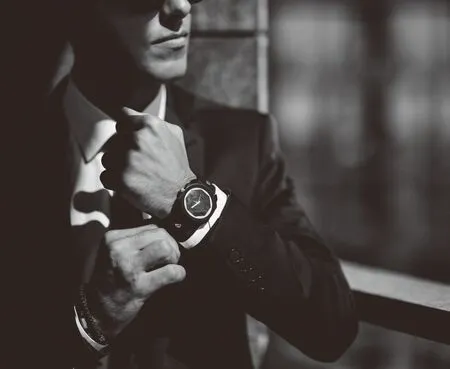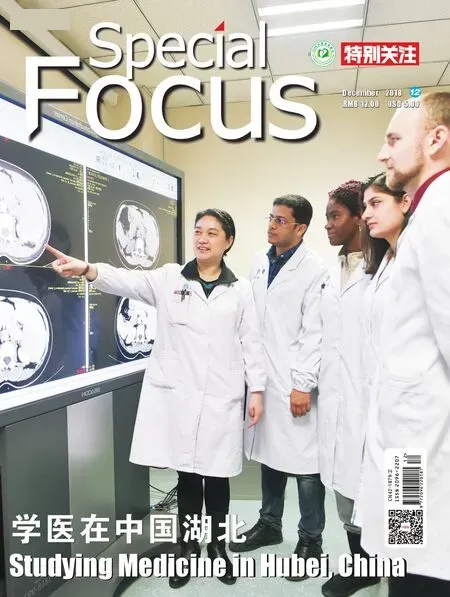The Value of Luxury Goods
By He Feipeng
For quite a long time, I could only understand the price of an item—but not the value of it. Once I received a bottle of red wine, which was said to be a rare vintage of a particular year from a famous wine region.Although it commanded a high price, I felt that it tasted similar to those cheap ones sold in an ordinary supermarket. I also once received a box of highgrade Cuban cigars. However,regardless of the price, I was repulsed by its choking smoke.Thus, I felt deeply ashamed of my poor taste.
My trouble goes far beyond this. Once I published a book by the well-known Japanese artist Takashi Murakami, and I invited him to deliver a speech in Taiwan. A doll designed by him was sold at several million dollars. Although I was clear about the price tag, I didn't know anything about its value. I tried to read his books attentively,listen to his speech, and even consult him in person to try to straighten out my question, yet I was still confused—so I had to put it down to my ignorance. On New York's famous Fifth Avenue and Tokyo's Omotesandou, young folks are constantly rushing for the designer clothes and bags with a whopping price. From their obvious enthusiasm, I think they must understand the value of those items.
Although I understand their price tag, I am totally clueless about their value—so I would definitely not buy them. But what puzzles me is why all of these young boys and girls appreciate“value” better than I do?
And how come wealthy people suddenly have a high appreciation level of the arts? Not only do they collect expensive works of art,they also seem to know a thing or two about their value.
I suppose it is attributed to the fact that they have both money and time, so they can seek guidance from experts and quickly learn to appreciate the value of artwork, and they can with a delicate and acute insight.If I have a pleasant feeling, and want to experience it again, I'd regard the ability to give me this feeling as “value.” The stronger afford the price tag as well.

Facing the problem, I'd try not to be trapped in my own lie forever by pretending to get the point, as I would be exposed easily, and could end up in an awkward position. To put things right once and for all, I must truly understand both the price and value.
So, I started to appreciate expensive items in my own way.
Whatever I eat, drink, wear,use, and see, I try to express how I feel and to understand everything
the pleasant feeling is, the higher the value. For example, I have worn suits from big brands, and,in my eyes, their tailored and stylish designs are the value. I have also tried tuna belly from fresh tuna caught from coastal waters of Taiwan in early May—it was so tender and smooth that it melted immediately in my mouth,which is also “value.” However,the pleasant feeling is limited to the first three pieces, and if you eat more than three, the value of the tuna is compromised, no matter how costly it is.
After such personal exploration, I have begun to understand the difference between price and value—that is, price is merely a number in a business deal, but value originates from the unique feeling of each individual.
Two people see the same thing differently. Everyone should decide the value of a thing according to his or her own preferences and feelings, rather than by the price tag or some social trend. I'm no longer baffled by those expensive items, but if I cannot feel the beauty of them with my delicate sensations,or describe them with my own words, or accept them with my heart and soul, then they mean nothing to me, and I don't need to pretend to understand or accept them.
Moreover, I know that we should not be restrained by the trends of society, and never spend money on anything that is useless to ourselves.
(From Community, April 2013.Translation: Zhu Yaguang)

奢侈品价值几何
文/何飞鹏
我长期只看得懂价格,却看不懂“价值”。有人送我一瓶红酒,说是某知名产区某年份的绝佳收藏,价格奇高无比,我却感觉和一般超市所买的廉价红酒没什么差别;有人送了高级古巴雪茄给我,说价格如何昂贵,但呛得我无法享受。我对自己的没品位甚为汗颜。
我的麻烦还不止这些。我出版知名设计师村上隆的书,邀请他来台湾地区演讲。他设计的一个公仔,卖了几亿元,我知道价格,但对于它有什么价值,无法理解。我尝试仔细阅读他的书、听他演讲,还当面请益,看看能不能开窍,但也只是一知半解,只好承认自己慧根不足。在美国纽约第五大道、日本东京的表参道,年轻人抢购着天价名牌包、名牌服饰,从他们的痴迷程度来看,我想他们一定懂得这些东西的价值。
只是我看得懂价格,但不知其价值何在,当然也就不会下手。我困惑的是,为什么这些小女生、小男生,都比我更懂得“价值”呢?
还有,有钱人的艺术鉴赏水平为什么忽然变高了,他们会高价收藏艺术品,而且对这些艺术品的价值,他们也能说上几句。
我猜应该是有钱人有钱有闲,可以请专家教导,所以就能快速学习,看得懂艺术品的价值,也能负担得起价格吧。
面对这个问题,我不能长期用假装理解来自欺欺人,因为这很容易穿帮,让自己处在尴尬的境地。我必须理解价格以外的价值,才能一劳永逸。
我开始用自己的方法理解所有的高价品。
有机会吃、喝、穿、用、看,我会尝试说出自己的感觉,用纤细、敏锐的观察和接触,去理解一切。而如果这些感受是美好的,是期待重复感受的,那我会认为:这就是“价值”,美好的感受愈强烈,价值愈高。举例而言,我穿过某一名牌服装,那种贴身剪裁的感觉,那种有型有款的挺拔,就是价值;我吃过5月上旬从台湾岛近海捕捞制成的新鲜鲔鱼肚,口感绵密、入口即化,但也就前三片感觉最好,这也是价值。吃多了,超过三片,再高价也价值不高了。
经过这样的探索,我开始理解价格与价值的差异。价格只是一个交易的参考数字,而价值源自每个人不同的感受。
同样的事物,对每个人的价值感受都不同,每一个人应该根据自己的喜好和感受,来决定其要接受的事物的价值,不要因为价格而盲目接受,更不要因为追赶潮流而接受。我不再对高价事物感到困惑,如果我不能用自己纤细的感受体会它的美好,不能用自己的言语描述它的美好,不能用自己的心灵接受它的美好,那么,它对我就没价值,我不需假装理解、假装接受。
我更知道,不应被世俗的流行所制约,不应把钱花在对你没有价值的事物上。
(摘自《社区》2013年第8期)

